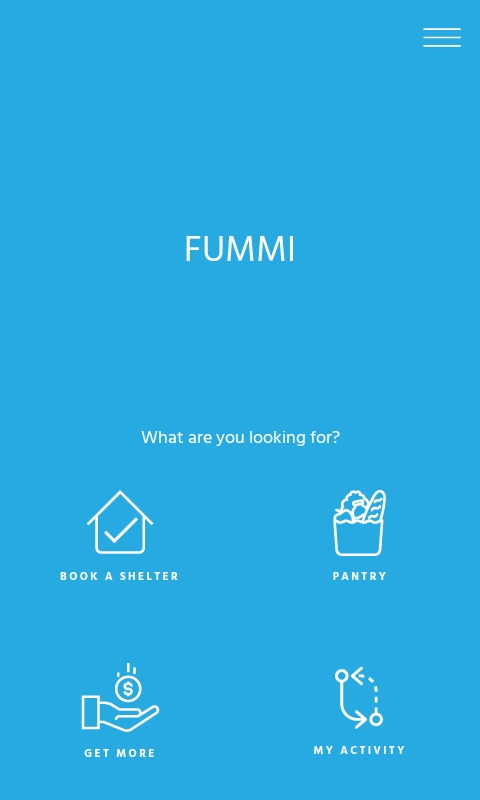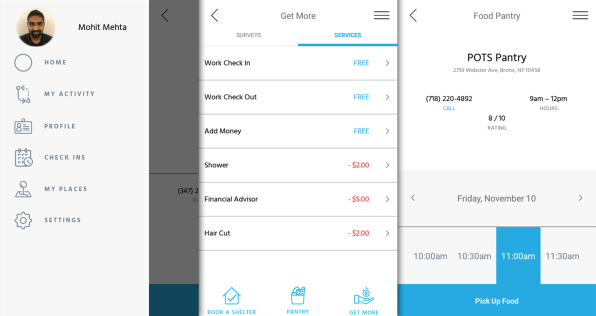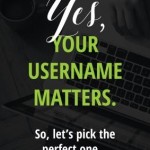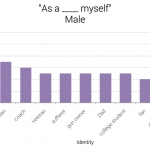This New Blockchain Project Gives Homeless New Yorkers A Digital Identity
Three thousand homeless people in New York are about to receive a special holiday gift: a free smartphone that allows them to manage their digital identity, access shelters and food pantries, and make use of financial services. The initiative, which uses blockchain technology, may be the first time a distributed computer ledger has been employed to help a homeless population.

The project comes from Blockchain for Change, a New York City startup that has developed a mobile app called Fummi that’s preloaded on the phone. It has teamed up with Life Wireless, which provides phones to low-income groups using federal subsidies. Also involved are NYC service providers like Urban Pathways, Part of the Solution (POTS), Hakook, and the Robin Hood Foundation.
Life Wireless is distributing the phones, starting in the Bronx. The service groups create the blockchain identities for individuals. Once on the system, they can then open an account, receive money, and track their activity. For instance, the app shows when someone has checked into a shelter, how much they paid for showers, haircuts, and clothes, and their available balance. Fummi aims to be one-stop-shop for all the services the homeless use regularly.
Blockchain for Change has two big purposes. The first is to help the homeless access services they are entitled to, and at discounted prices. More than 60,000 people spend the night in shelters in New York alone, and many don’t currently have digital identities, cofounder Calvin Bradley tells Fast Company. That restricts access to financial services and government programs, where identity needs to be authenticated.
The app includes a digital wallet that can hold both dollars and a cryptocurrency created for the project called Change Coin. When users sign up for Fummi (currently only on Android) they get 30 Change Coins free of charge. They can get more coins as they buy services through the platform, meet financial goals, refer friends, or take part in peer-to-peer lending programs. The coins can be redeemed for more talk-time and data on the phone.

“The cryptocurrency is designed to increase the usage of our applications as well as the purchases on our co-operative purchasing platform,” says Bradley. “The ultimate goal is to create a store of value for people, so they can mitigate some of the savings and income volatility that [follows] this demographic.”
The second purpose is to help service providers–both private and public– to link up with the homeless more efficiently. The app creates an internal “ecosystem” for ID, payments, and services, so transaction costs are minimized. Meanwhile, because a person’s ID is stored permanently and inviolably on a blockchain, there’s no need to “onboard” recipients as they come on and off the rolls.
“The problem for government agencies is the churn that they have for programs like [food stamps]. Someone applies, uses it for three or four months, leaves and then comes back on. There’s a massive administration cost for agencies,” Bradley says. Figures from the startup show that $3 billion a year is lost in fraud around the food stamp and Earned Income Tax Credit programs, and that $1 billion in benefits go uncollected.
Blockchain for Change sees its New York pilot as a first step. By the end of the second quarter of 2018, it hopes to have distributed 200,000 Fummi-enabled phones through Life Wireless. Across the U.S., about 11% of the voting-age population doesn’t have a government-issued ID but the vast majority of people do have cell phones (in New York City, the percentage is upwards of 95%). About 45 million use the Lifeline program (the federal subsidy), either in the form of a cell or home device.
Blockchain for Change has raised more than $500,000 in a seed round, but it’s also planning a public initial coin offering where it hopes to raise up to $50 million. It generates revenue by charging fees to users at a rate of $3 per month.
Though blockchain hasn’t, until now, been used for serving the homeless, various agencies have used the technology for international aid payments and helping refugees. It’s estimated that 1.1 billion people worldwide don’t have an officially-recorded identity, making access to bank accounts, loans, and government services more difficult. Moreover, it’s hoped that blockchain, which provides a permanent, distributed record of transactions, can help cut corruption and waste. The UN says up to 30% of aid never reaches its rightful destination.
Fast Company , Read Full Story
(26)














